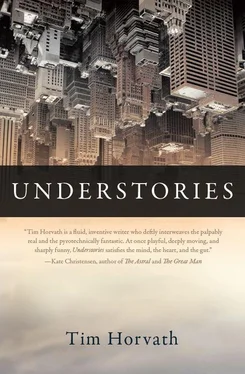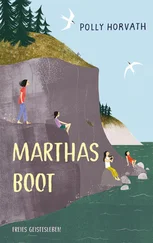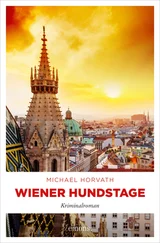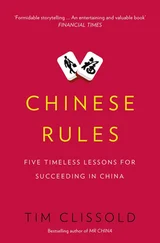As for me, my work is much more mundane. Philosophy — the ontology of shadows in the history of thought, and given the postlinguistic turn, of course, how they’re treated in language. Plus, I oversee the department. I’ve chaired for eleven years now and probably will till I retire or keel over. No one else wants it — can you imagine Dahlia, with her sextuple-jointed puppets, filing a budget or tracking postgrad job stats? She may talk like a Flatbush Avenue importer with her students, but she’s a softy when it comes to the bureaucrats. I’m not crazy about paperwork but I’m orderly and never cowed, especially by some administrator with a diploma in something called “public policy.”

And hey, if Lew wants to cash in on his research so his two kids can go to their colleges of choice, can I blame him? He can even justify it morally — he’s making the world a safer place . His algorithms will help snare terrorists huddling in the mountains of western Pakistan. Help rid the world of evil.
Not incidentally, they’ll also make him rich, and in the meantime the terrorists will cover their tracks better, find alternate hideouts, go deeper, where their shadows, seen only by the walls, won’t betray them.
Still, I don’t hold it personally against Lew. With Edmund, it feels a bit more personal, more Et tuish. After all, I recruited him, groomed him, saved him from the fate of a giant state school with its rows of clonelike cheerleaders and ambiguously mammalian mascot. Last time our eyes met, he ducked between buildings and I caught his shadow as it fluttered for a millisecond at the corner, as if hesitating. He was gone. Cold shoulder no mere figure of speech.

In memory, I’m Edmund’s age again, home for fall break. I sit my father down and tell him I’ve got an inkling of what I’m going to do with my life, and he looks at me quizzically. “Umbrology? The study of umbrellas?” Impossible to know, then, how typical this reaction will be. Countless times I’ll hear it over the years, even hear about ingenious designs from closet inventors, giddy for an audience. “No,” I’ll learn to cut in gently, “the study of shadows.” (Always shadows , the vernacular, never shadow , though the semantics is hardly uncontroversial in the field; one either deems it substance or quantifiable entity and thus divisible. Each has consequences.)
My dad is far from the worst, though. From him, I never expected understanding. He worked with his hands, wiring buildings, whole counties. Worse are those who should know better, colleagues whose own disciplines get scoffed at as impractical — sociologists, literary critics, art historians. When they imply or even state outright that offices and funding and a fax machine are luxuries we aren’t worthy of, it stings. We’re a stone’s throw from parapsychology, they’d have it; we’re Sasquatch groupies, Roswell nuts. I much prefer the out-and-out jokers, such as the guy who showed up at one of our slide shows — open, as always, to the public — and cast a giant phallus against the screen, balls and all. Witless, yes, and yet my instinct was to invite him to one of my classes.
The thing I find least forgivable, though, is flatness. “Oh, study shadows, do you? Well, geez, how about the football team, huh?” Dwelling in two dimensions so much of the time, as I do, I shouldn’t be rankled by this but am.

It’s not hard to pick us out: the vision always slightly askew, aimed downward or slightly to the side. We take on a certain look, a spinal kink, the price exacted in chronic conditions that demand regular visits to orthopedists, chiropractors, the town’s Rolfer. It’s not all bad — I kept crossing paths with the same violinist. Once we’d established the similarity of our ailments, she got me cheap balcony seats at the symphony, and Edmund and I, then on benign terms, sat there and reveled in the antic play of bows and horns across sheet music and against the performers’ neatly pressed white shirts, with the occasional ricochet off the gleaming, chair-checkered stage. Of course, I enjoyed the music, too; without it, the shadows would have been of only passing interest.

Leaving my office today, I sit in the parking lot, visor lowered, watching Kuperman’s Impreza out of the corner of my eye. I’m not the following type — I’ve never pursued anyone in my life. But as chair, I’m the guy ultimately responsible if he’s not in his office during the hours clearly posted. So far it’s easy — I might just be sitting here exactly as I am, downing wasabi peas. I suspect he’s off to see Dahlia. Their sparring, the way their barbs hook just slightly toward one another in meetings, betrays a secret history, a tryst. Case in point: he recommends a cinematographer friend as a guest speaker, she fires back that the lecture series is about the students, not us , he parries with “There’s no rule that says they can’t enjoy the talk. .” And here my gut tells me this is all allegorical, that it’s the bedroom that’s on trial. The grapevine backs me up. While I generally frown on faculty flings, I can see it has added a few coils to Dahlia’s step; maybe she’ll get around to writing the article on shadow erotica she’s been bandying about since the day I met her. I know Kuperman is using her for short-term gratification, probably plying her with promises whose shelf life is the term’s end; I hope it won’t leave her marriage wrecked, but beyond that, I don’t really care one way or the other.
But I have to ensure Kuperman isn’t in violation of the terms he signed on for. If he’s contractually on campus x hours a week, whether he’s schtupping Dahlia or playing cribbage instead is, frankly, irrelevant.
Now he pulls out and I do a slow five count before pulling out behind him. I get stuck waiting for students, one walking a bike, to cross at their languorous pace, and I’m sure I’ve lost him, but at the light, I spot the Impreza. I stay three car lengths back as we glide down Meadow and into the right-turn-only lane for Fessenden. He goes straight, not the way to Dahlia’s two-family Victorian. A motel rendezvous? He pulls into the lot behind Sips and Swigs, and I, in turn, ease into what isn’t a spot but a good vantage point. At first, I think I’m mistaken when I see Edmund Evans in boxlike glasses, frayed jeans, and loafers stride up and into the shop. There are several students who share his look, and Edmund doesn’t touch coffee. And he can’t stomach Kuperman, at least as of last time we spoke. But no, it’s him, and they must be here together. I consider abandoning the car and strolling in but balk; three umbrologists in a coffee shop sounds like a joke, but can be no coincidence, so instead I squint at the semiopaque windows.
Edmund and Kuperman? I make out shapes at a table. An anti-Venn diagram — two sets whose overlap is nil, betwixt whose sensibilities runs an unfathomable chasm. Yet here they are.
I’d give anything to be able to listen in. Instead, I shovel several fistfuls of peas into my mouth, wasabi like a creeping flavor-shadow, until I hear a series of raps on my window and look up to see a cop pointing at the sign; he looks angry, personally offended. Nodding, I turn the ignition — I ignite — and move out. I’m running late for Intro Umbro, the first years, and if I’m not there, they’ll leave.
I race in two minutes late, and there are jokes—“We were, like, whoa, is it a shadow holiday?”—and statements—“Bix was ready to peace.” Bix, backup quarterback who can scramble and throw with equal ease, exquisitely diligent, takes the ribbing good-naturedly. I say, “It’s a good thing you didn’t. It’s movie day.”
Читать дальше













